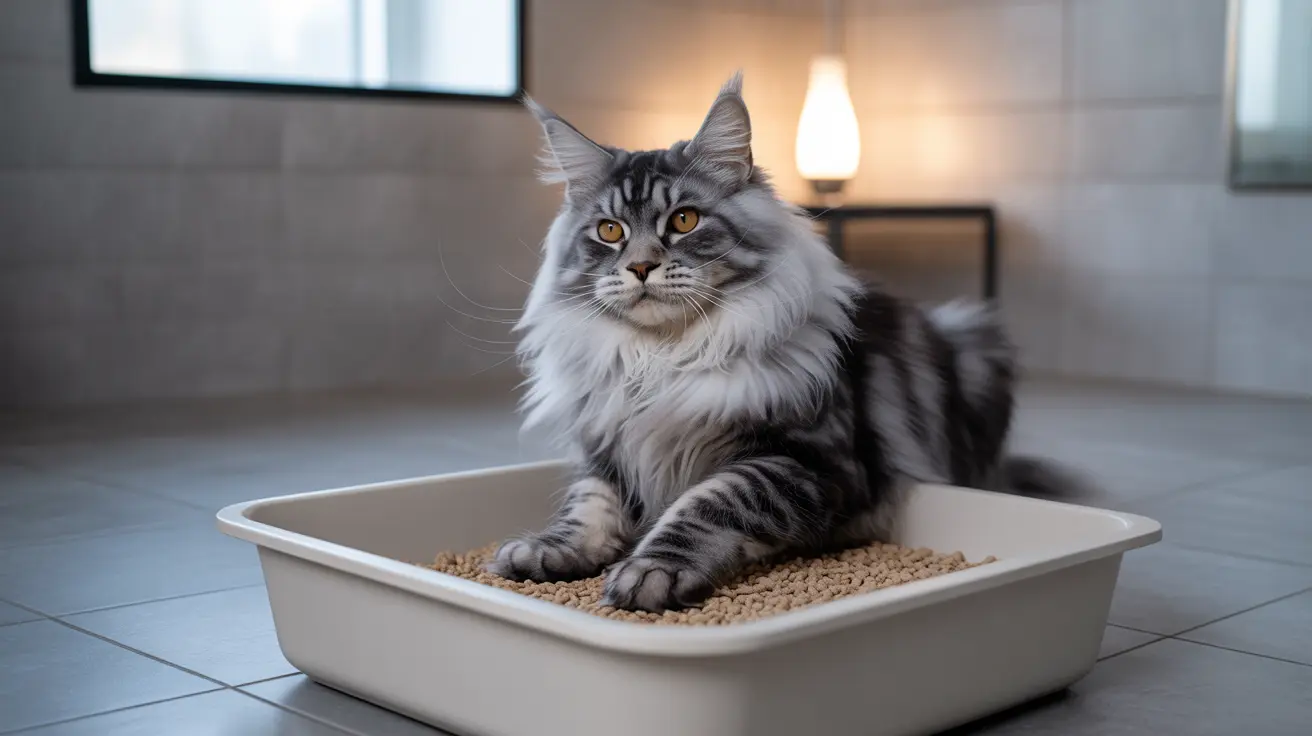If you've ever noticed a strong ammonia smell coming from your cat's litter box, you're not alone. This common occurrence has both natural and potentially concerning causes that every cat owner should understand. Let's explore why cat urine develops this distinctive odor and what it might mean for your feline friend's health.
The Science Behind Cat Urine's Ammonia Smell
Cat urine naturally contains urea, a compound that breaks down into ammonia when exposed to bacteria. This chemical process intensifies over time, especially when urine sits in the litter box or soaks into surfaces. Your cat's highly efficient kidneys actually concentrate urine more than many other mammals, leading to naturally stronger-smelling waste.
Common Causes of Strong Ammonia Odor
Natural Factors
Several normal factors can contribute to the ammonia smell in your cat's urine:
- Concentrated urine due to efficient kidney function
- Dietary protein content, especially from chicken-based foods
- Dehydration or insufficient water intake
- Age of the urine in the litter box
Medical Conditions
A particularly strong ammonia smell might indicate underlying health issues:
- Urinary tract infections (UTIs)
- Kidney disease
- Diabetes
- Bladder stones or crystals
- Feline Lower Urinary Tract Disease (FLUTD)
Managing and Reducing Ammonia Odors
Proper Litter Box Maintenance
Regular litter box maintenance is crucial for controlling ammonia odors:
- Scoop the litter box at least once daily
- Complete litter change weekly
- Use high-quality, odor-absorbing litter
- Provide multiple litter boxes in multi-cat households
Dietary and Hydration Solutions
Proper nutrition and hydration can help reduce strong urine odors:
- Ensure constant access to fresh water
- Consider incorporating wet food into their diet
- Consult with your vet about appropriate protein levels
- Monitor food quality and ingredients
When to Seek Veterinary Care
Contact your veterinarian if you notice:
- Sudden increases in urine odor
- Changes in urination frequency or behavior
- Signs of straining or discomfort while urinating
- Blood in the urine
- Urinating outside the litter box
Frequently Asked Questions
Why does my cat's pee smell like ammonia and how can I reduce the odor?
Cat urine contains urea, which naturally breaks down into ammonia. To reduce the odor, maintain clean litter boxes, ensure proper hydration, and use quality litter. Regular scooping and complete litter changes are essential for odor control.
Can a strong ammonia smell in my cat's urine indicate a urinary tract infection or other health problems?
Yes, an unusually strong ammonia smell can indicate various health issues, including UTIs, kidney problems, or diabetes. If accompanied by other symptoms like frequent urination or straining, consult your veterinarian.
How does my cat's diet affect the ammonia smell in their urine?
High-protein diets, especially those chicken-based, can increase urea production and result in stronger-smelling urine. Proper hydration and balanced nutrition can help moderate urine concentration and odor.
What litter box cleaning habits help prevent strong ammonia odors from cat urine?
Daily scooping, weekly complete litter changes, using odor-controlling litter, and maintaining multiple clean boxes for multiple cats are essential practices for preventing strong ammonia odors.
When should I take my cat to the vet if their urine smells strongly of ammonia?
Seek veterinary care if the strong ammonia smell persists despite good hygiene practices, or if accompanied by changes in urination habits, visible discomfort, blood in urine, or urinating outside the litter box.
Understanding why your cat's urine smells like ammonia and taking appropriate action can help ensure your pet's health while maintaining a fresh-smelling home. Regular monitoring, proper maintenance, and prompt attention to changes in urine odor are key aspects of responsible cat care.






